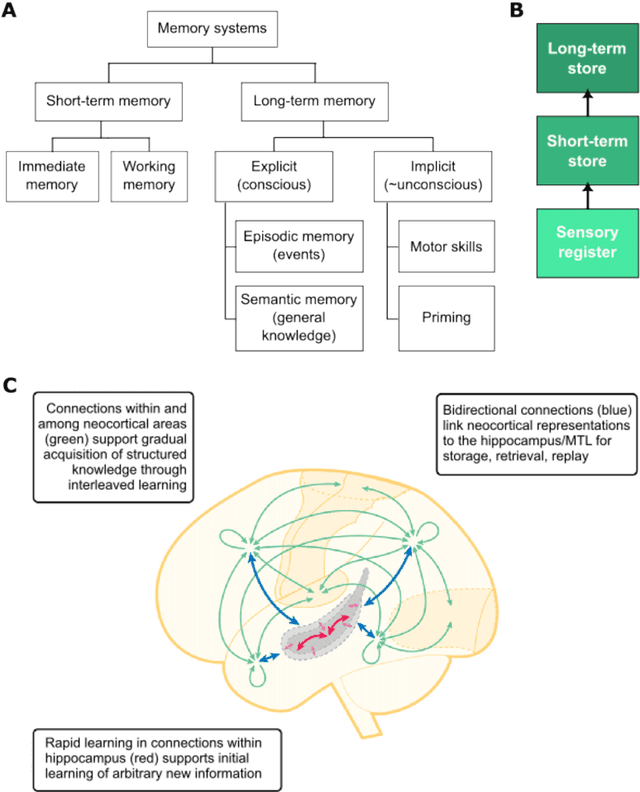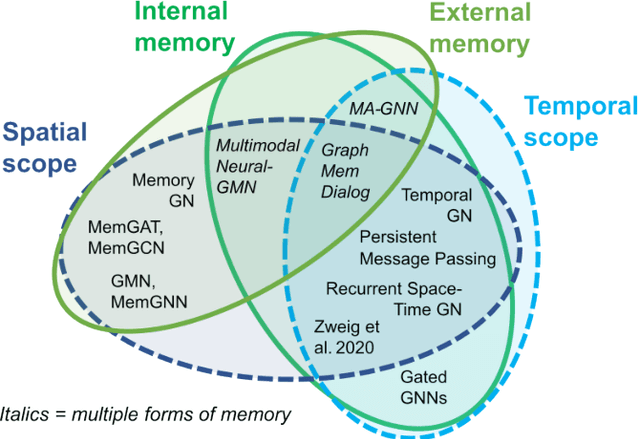Memory-Augmented Graph Neural Networks: A Neuroscience Perspective
Paper and Code
Sep 22, 2022



Graph neural networks (GNNs) have been extensively used for many domains where data are represented as graphs, including social networks, recommender systems, biology, chemistry, etc. Recently, the expressive power of GNNs has drawn much interest. It has been shown that, despite the promising empirical results achieved by GNNs for many applications, there are some limitations in GNNs that hinder their performance for some tasks. For example, since GNNs update node features mainly based on local information, they have limited expressive power in capturing long-range dependencies among nodes in graphs. To address some of the limitations of GNNs, several recent works started to explore augmenting GNNs with memory for improving their expressive power in the relevant tasks. In this paper, we provide a comprehensive review of the existing literature of memory-augmented GNNs. We review these works through the lens of psychology and neuroscience, which has established multiple memory systems and mechanisms in biological brains. We propose a taxonomy of the memory GNN works, as well as a set of criteria for comparing the memory mechanisms. We also provide critical discussions on the limitations of these works. Finally, we discuss the challenges and future directions for this area.
 Add to Chrome
Add to Chrome Add to Firefox
Add to Firefox Add to Edge
Add to Edge